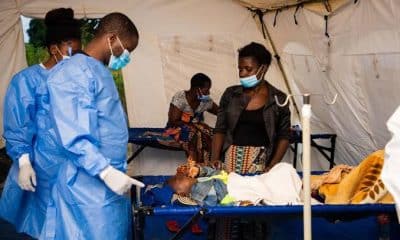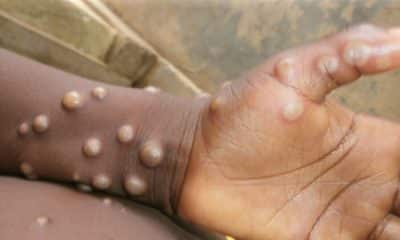Gist
63 People Die Of Cholera Outbreak As NCDC Confirms 2,102 Active Cases

The Nigeria Centre for Disease Control and Prevention (NCDC) announced on Tuesday that as of June 30, 2024, there have been 2,102 suspected cholera cases and 63 fatalities reported in 33 states and 122 local government areas since the year started.
Naija News reports that the NCDC Director-General, Jide Idris, shared this information during a press conference in Abuja on Tuesday, highlighting that the death rate from cholera is 3.0%.
He mentioned that the seven states with the highest number of cases (Lagos, Bayelsa, Abia, Zamfara, Bauchi, Katsina, Cross River, Ebonyi, Rivers, and Delta) account for about 90% of the total cases, indicating a significant concentration in the Southern region that requires targeted interventions.
Cholera, a highly infectious disease spread through contaminated food and water, has recently caused significant and severe outbreaks in various parts of the country.
It is caused by consuming the bacteria vibrio cholerae found in polluted water and food.
As of June 30, 2024, there have been 2,102 suspected cholera cases and 63 deaths reported in 33 states and 122 local government areas, with a case fatality rate of 3.0%. Seven of the top 10 states contributing to most cases are in the South.
Giving further details on the situation of the disease and actions taken, Idiris said: “The National Cholera Multisectoral Emergency Operation Centre activated parades an array of subject matter experts and provides strategic coordination, meets daily and provides periodic situation reports for stakeholders.
“This also ensures effective mobilisation, harmonisation and distribution of resources to support the affected states. This is done through the relevant thematic areas of response that cover coordination, surveillance, case management, infection prevention and control, risk communication and community engagement, Water Sanitation and Hygiene, Vaccination, Logistics, Research with a costed Incidence Action Plan for the response developed and being implemented.
“These will help facilitate rapid communication, data analysis, and decision-making. It will also ensure that we deploy resources efficiently, strengthen surveillance and diagnostic capacity, enhance treatment of affected persons, and intensify public awareness and community engagement activities.”












